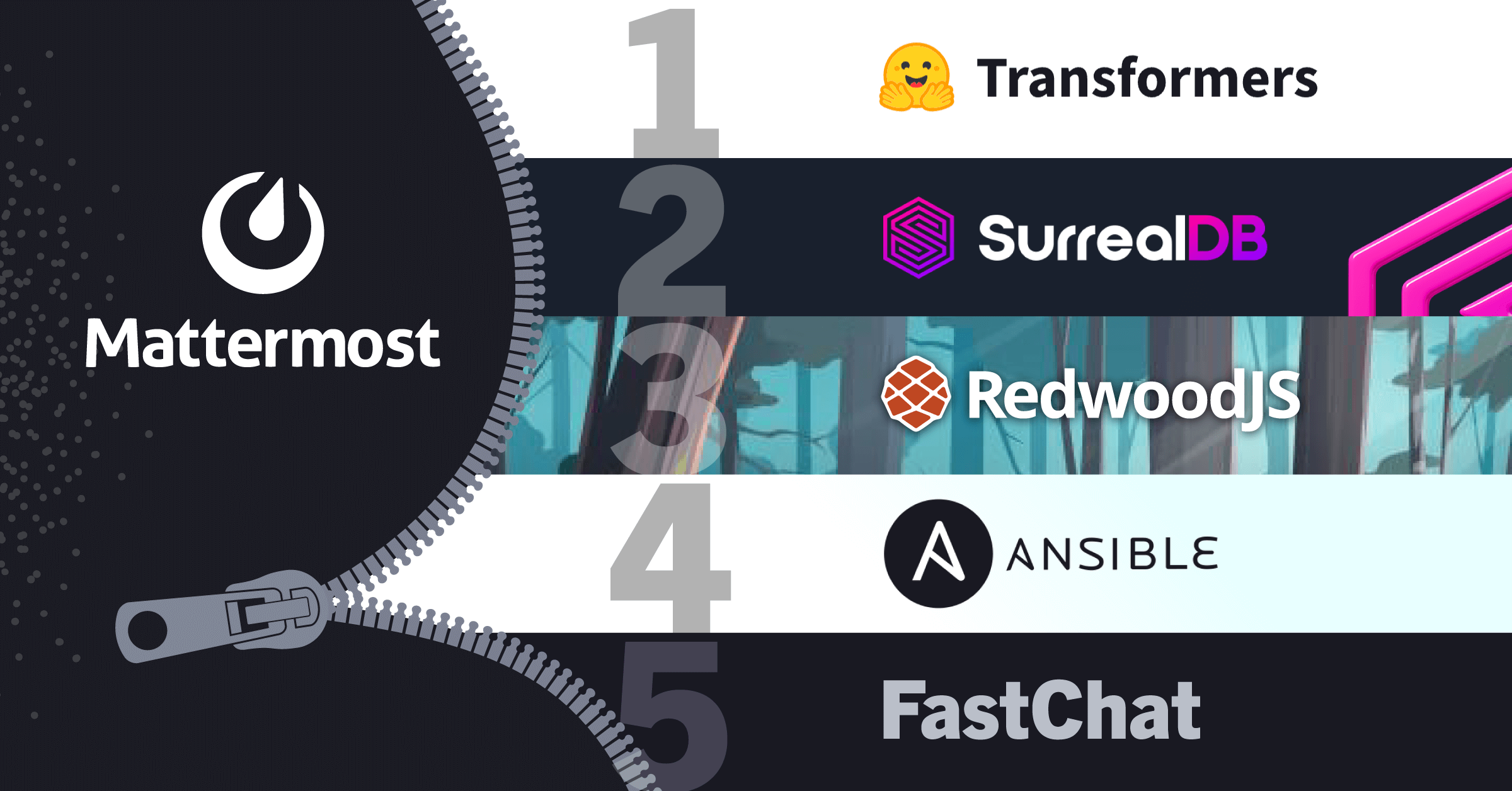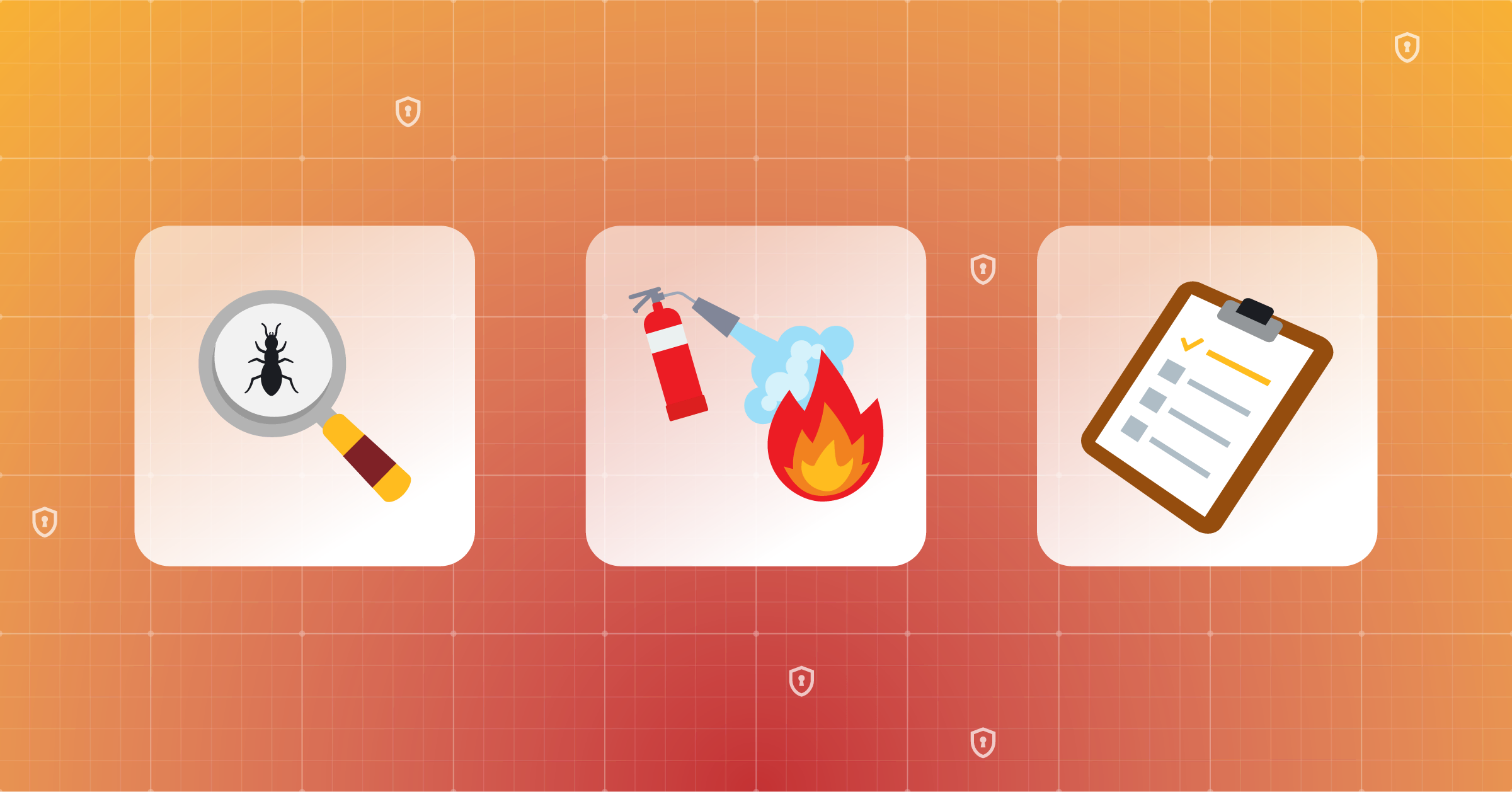
5 open source projects to contribute to in 2024
Contributing to open source software helps you develop new skills, gain real-world coding experience, interact with new technologies, and meet new people.
But with so many open source projects to choose from — developers started some 52 million new projects on GitHub in 2022 alone — it can be difficult to figure out which repositories to contribute to.
If you’re thinking about joining a new open source project in 2024, you’ve come to the right place. Keep reading to learn about five impressive open source projects we’ll be watching all year long to see if any catch your eye.
1. Transformers
Built by the team at Hugging Face, Transformers is an open source platform and library that provides a collection of pre-trained natural language processing (NLP), computer vision, and audio models built for deep learning use cases.
Transformers are a type of deep learning architecture that has proven highly effective for tasks like text classification, question answering, summarization, language translation, object detection, speech recognition, and sentiment analysis. The project leverages three popular deep learning libraries — TensorFlow, PyTorch, and JAX — and seamlessly integrates with each. Users can leverage pre-trained models or fine-tune them for specific tasks, saving time and computational resources.
Currently, Transformers has more than 117,000 stars on GitHub. If you want to learn more about the project, explore the repository.
2. SurrealDB
An end-to-end cloud-native open source database, SurrealDB supports all kinds of applications, including serverless, traditional web and mobile apps, Jamstack, and backend. The NewSQL multimodal database, written entirely in Rust, is versatile by design and supports multiple querying languages, including GraphQL, structured and unstructured data (e.g., tables and graphs), ACID transactions, and geospatial querying, providing developers with several different ways to store and model data. SurrealDB is also highly scalable and teams can deploy it in many different environments, including on-prem, in the cloud, on the edge, or embedded.
The project came online in December 2019, with SurrealDB v1.0 appearing in September 2023. Currently, SurrealDB has more than 23,500 stars on GitHub. To learn more about the project and how to contribute, head over to the repository.
3. RedwoodJS
RedwoodJS is a full-stack JavaScript/TypeScript framework that supports modern web applications. Built on popular technologies like React and GraphQL, RedwoodJS is designed to make the software development process more straightforward and efficient. The framework, which was co-founded by Tom Preston-Werner, founder and former CEO of GitHub, works with Prisma, Jest, and Storybook. Apps built using the framework can be deployed to serverless hosts like Netlify and Vercel, built for containers, or rolled out on bare metal.
At a high level, the open source framework helps take a lot of decisions off the developer’s plate so that they can focus on building their application’s special sauce instead of worrying about which technologies to use and how to configure them. For example, RedwoodJS includes defaults for formatting, file organization, and Webpack. Applications are broken into two components — a frontend and backend — which live in a monorepo.
Currently, the project has over 16,500 stars on GitHub. If you’re looking to contribute, check out the repository.
4. Ansible
Ansible is an open source automation tool that handles configuration management, application deployment, task automation, and orchestration. Designed to simplify complex, repetitive, and time-consuming tasks in IT environments, Ansible makes it easy for system admins and DevOps teams to manage infrastructure efficiently. Red Hat purchased the suite of tools, initially released in 2012, in 2015.
Designed to make it simpler to deploy and maintain applications and systems, Ansible enables you to automate everything from code deployment to network configuration without downloading any agents. Users can use a declarative language, YAML, to describe what a system should look like in plain English, and Ansible ensures the end product matches that description.
With a large and active community and more than 59,500 stars on GitHub, Ansible may be just the project you’re looking for. Thinking about contributing to this project? Take a look at the Ansible repository.
5. FastChat
As a platform designed to help companies train, serve, and evaluate large language models (LLMs), FastChat is particularly beneficial for organizations looking to roll out chatbots. The FastChat team offers a Chatbot Arena where users can compare multiple LLMs directly against each other, voting for the option they consider produces the best response. To date, more than 100,000 users have judged head-to-head LLM “battles.”
If helping organizations figure out which LLM is best for their use case faster interests you, it may make sense to contribute to FastChat. Currently, the project has more than 30,000 GitHub stars; explore the repository to learn more.
Psst… You can also contribute to Mattermost in 2024!
Whether none of these projects resonate with you or you’d like to contribute to more than one community in 2024, you can also consider checking out the Mattermost repository and helping us build a resilient, flexible, secure collaboration hub for technical teams.
From developing our core platform or extending Mattermost with plugins, webhooks, and APIs to writing documentation, translating Mattermost into new languages, or helping with QA, there’s no shortage of ways to contribute to Mattermost.
To learn more about joining our community, check this out.




